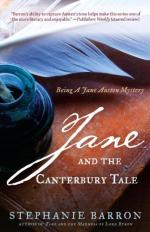|
This section contains 5,008 words (approx. 17 pages at 300 words per page) |

|
Religious Interpretations of Jane Austin Novels
Summary: If one can consider the idea that Jane Austen's fictional worlds contain a worldview that is not only compatible with Christianity, but one that can be profitably examined from a specifically traditional Christian perspective, then there is room for a religious interpretation of Austen's novels.
Is there the possibility for a religious interpretation of Jane Austen's novels? Though Austen never directly approaches religion, critics have speculated whether or not there are underlying religious implications in Austen's novels. For example, on the negative side, Avrom Fleishman claims: "At every level--psychological, mythic, and social--the vision of Mansfield Park is humanistic. It squarely acknowledges the imperfection of its historical situation while maintaining the secular hope that was to animate the nineteenth century" (77). On the other hand, Stuart Tave quotes Archbishop Whately's 1821 essay which claims Austen is "evidently a Christian writer" whose tact and artistry insure that her religion is "not at all obtrusive" (112), and C.C. Barfoot describes Austen as a writer who "stresses the value of traditional religious sources of moral strength" (7). The list of critics who have argued whether or not Austen writes with religious implications goes on and on. While it is difficult...
|
This section contains 5,008 words (approx. 17 pages at 300 words per page) |

|


